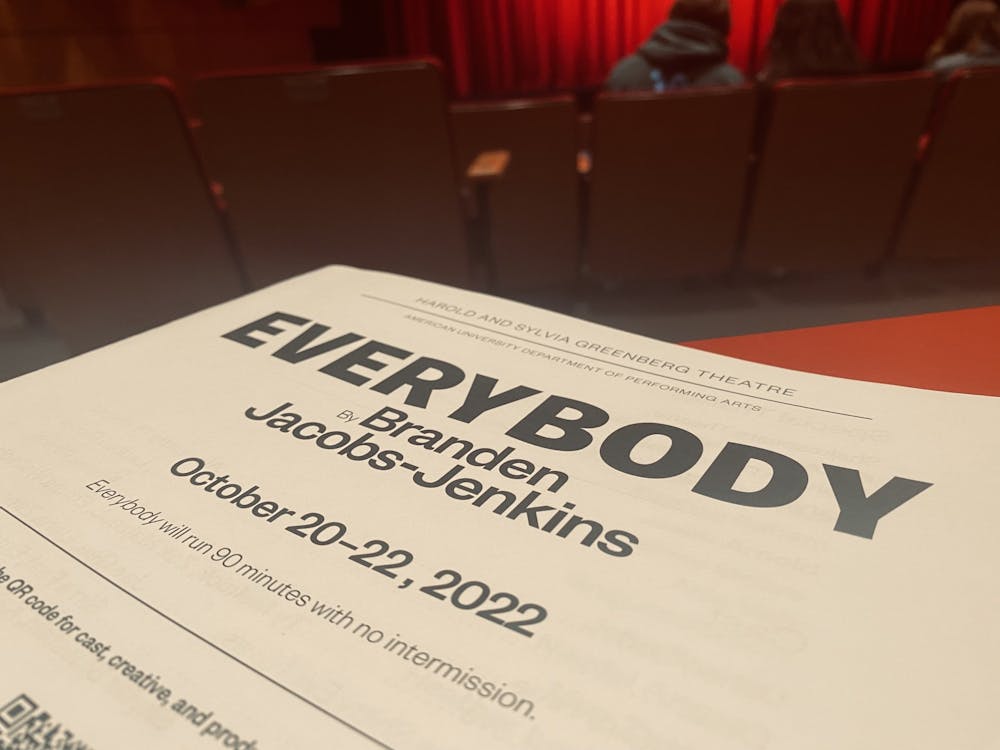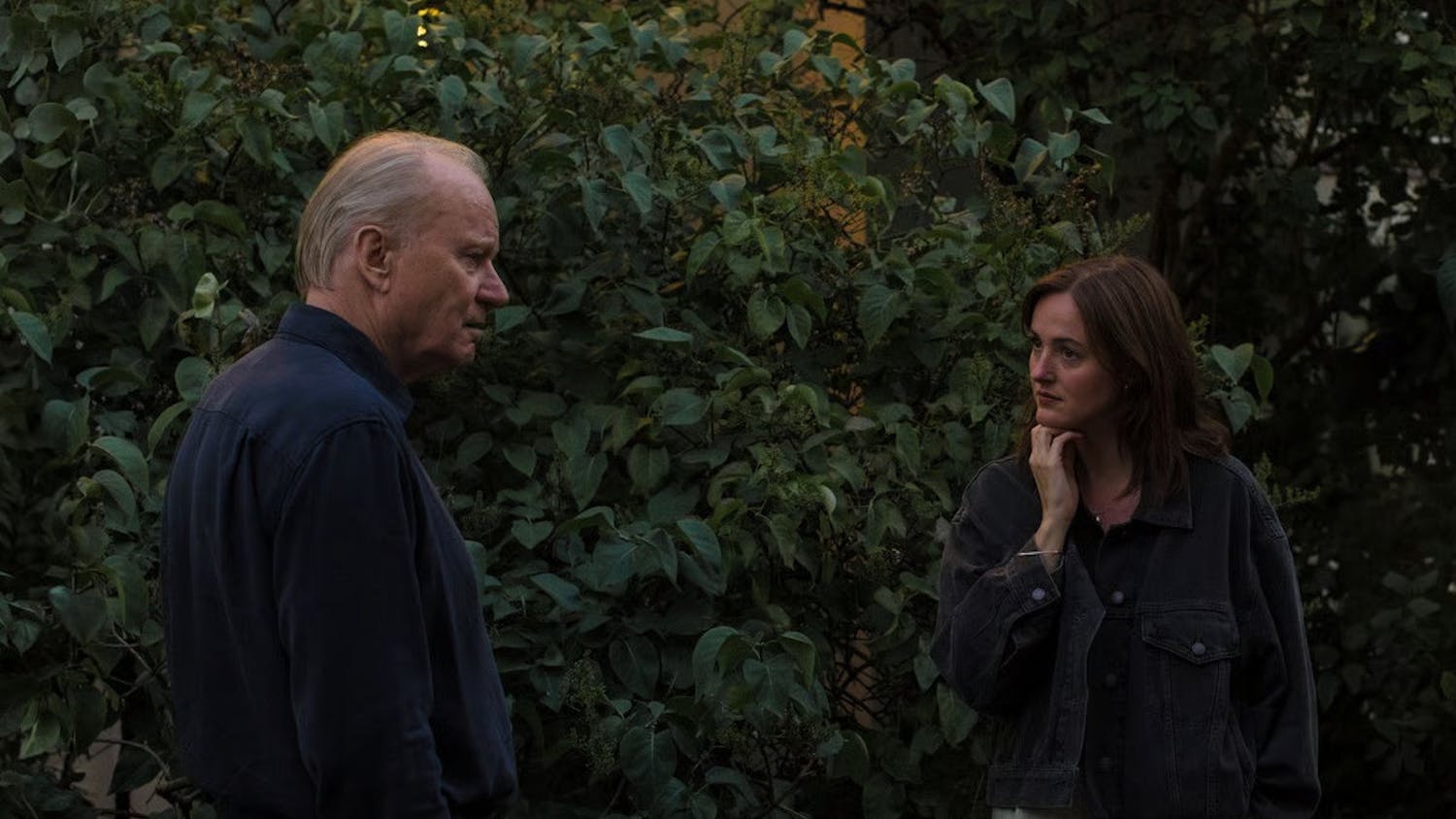Editor’s Note: The cast listed in this article represent the performers in the performance on October 20th at 8pm.
The immersive play “Everybody,” presented by the AU Department of Performing Arts from Oct. 20 to 22, was a captivating experience. The simplistic set design, talented cast and subtle comedy contributed to the play’s successful self-reflective journey.
Written by Branden Jacobs-Jenkins and directed by AU guest director Christopher Michael Richardson, “Everybody” is a modern adaptation of the 15th century play “Everyman.” The character Everybody (Zak Majzoub, Emma Wallach, Sedona Salb), an entity who is a metaphor of humanity, takes the audience on an exploration of morality.
The reflective nature of the play immediately becomes apparent when the audience realizes the allegorical characters are meant to symbolize parts of humanity, such as Friendship (Elena Zimmerman), Stuff (Skylar Bluestein), Love (Ty Melnik) and Understanding (Katherine Zimmerman). Many of the performers partake in a lottery before each show that determines which role they will be playing that night, as some of them have learned more than one.
Majzoub, Wallach and Salb, along with the ensemble cast, appear in the audience at the beginning of the show, and then move onstage to solidify the idea that the lessons learned in the play can be applied to real life and that Everyman could be any of us.
The play begins with God (Alexandra Plummer) expressing distaste for humanity. Accusing humans of being arrogant and prideful, God demonstrates disappointment in the complex creation that is humanity. God then calls upon Death (Lauren Riojas) to summon Everybody in order to question them on how they have lived. Everybody, fearing Death, desperately pleads to have a companion on their journey.
Friendship, whose energetic personality and colorful costume contrast with Death, refuses to accompany Everybody on their journey into the unknown. The character is also used to criticize social media, and ties a modern issue into the story effectively. Cousinship (Emma Altrichter) and Kinship (Sirra Faal), who also refuse to join Everybody on their journey, present the idea that devotion is, as Everybody calls it, “a vast conspiracy.”
Later, Everybody meets with Stuff, who is a being intertwined with various random objects. Stuff encapsulates the idea of capitalism and how human labor is translated into material items. To show that, in the end, material objects hold little value, Stuff poses one rhetorical question to be answered by the audience: Why is our society so enthralled with the idea of money?
The characters who eventually follow Everybody into Death are Love and All the Shitty Evil Things (Jae Gee). This contributes to one of the play's main messages: One cannot escape their prior actions in the face of Death.
The talented cast embodies the characters with commitment and delivers the messages of the story creatively. The allegorical figures had unique costumes which appropriately contrasted with Everybody’s earth-toned one. The sets were simplistic, containing colorful geometry and contributed to the performance without overpowering the actors.
Richardson directed a thoughtful play the audience can relate to. The cast does a phenomenal job tackling complex moral issues and entraps the audience so they can contemplate its meaningful messages.





